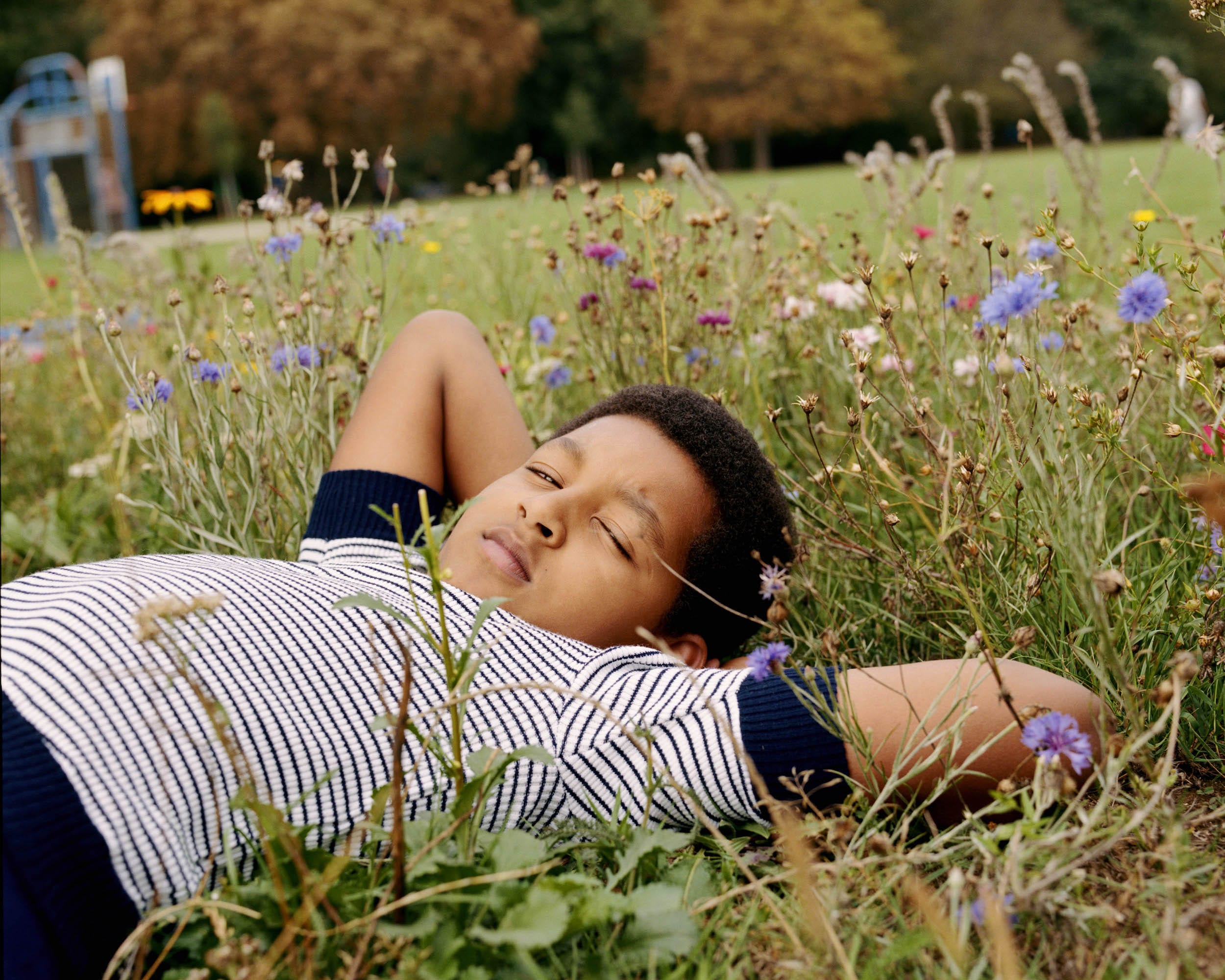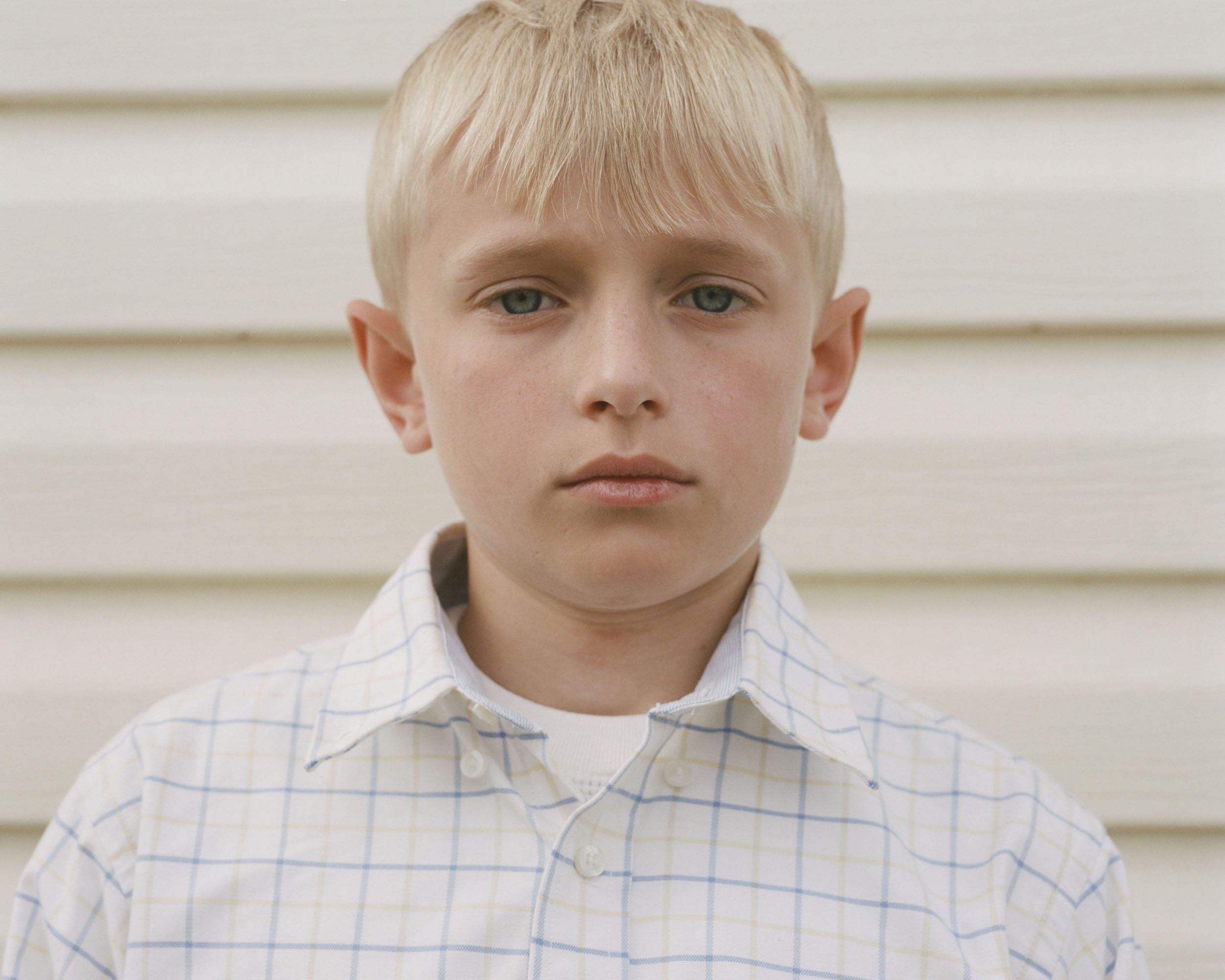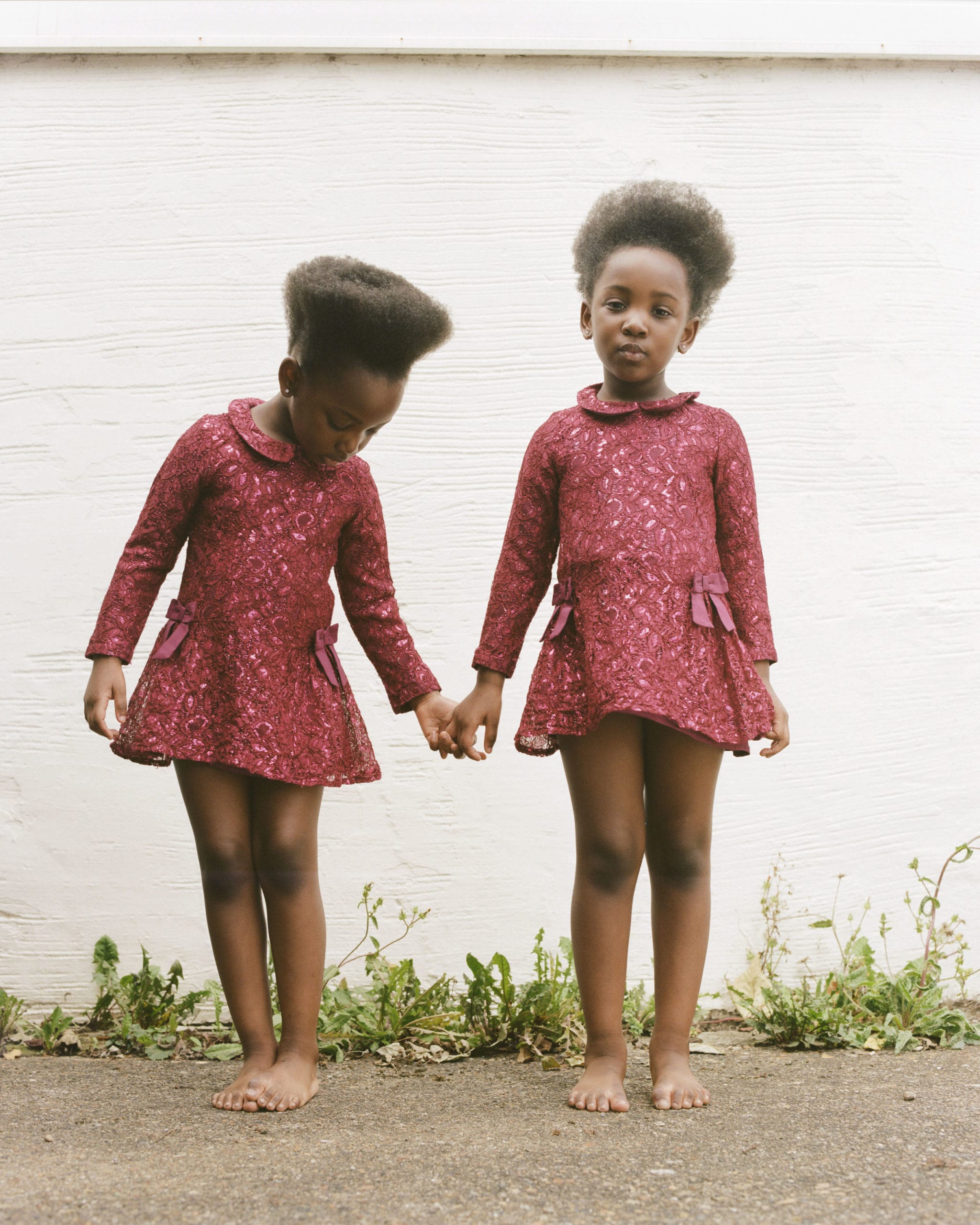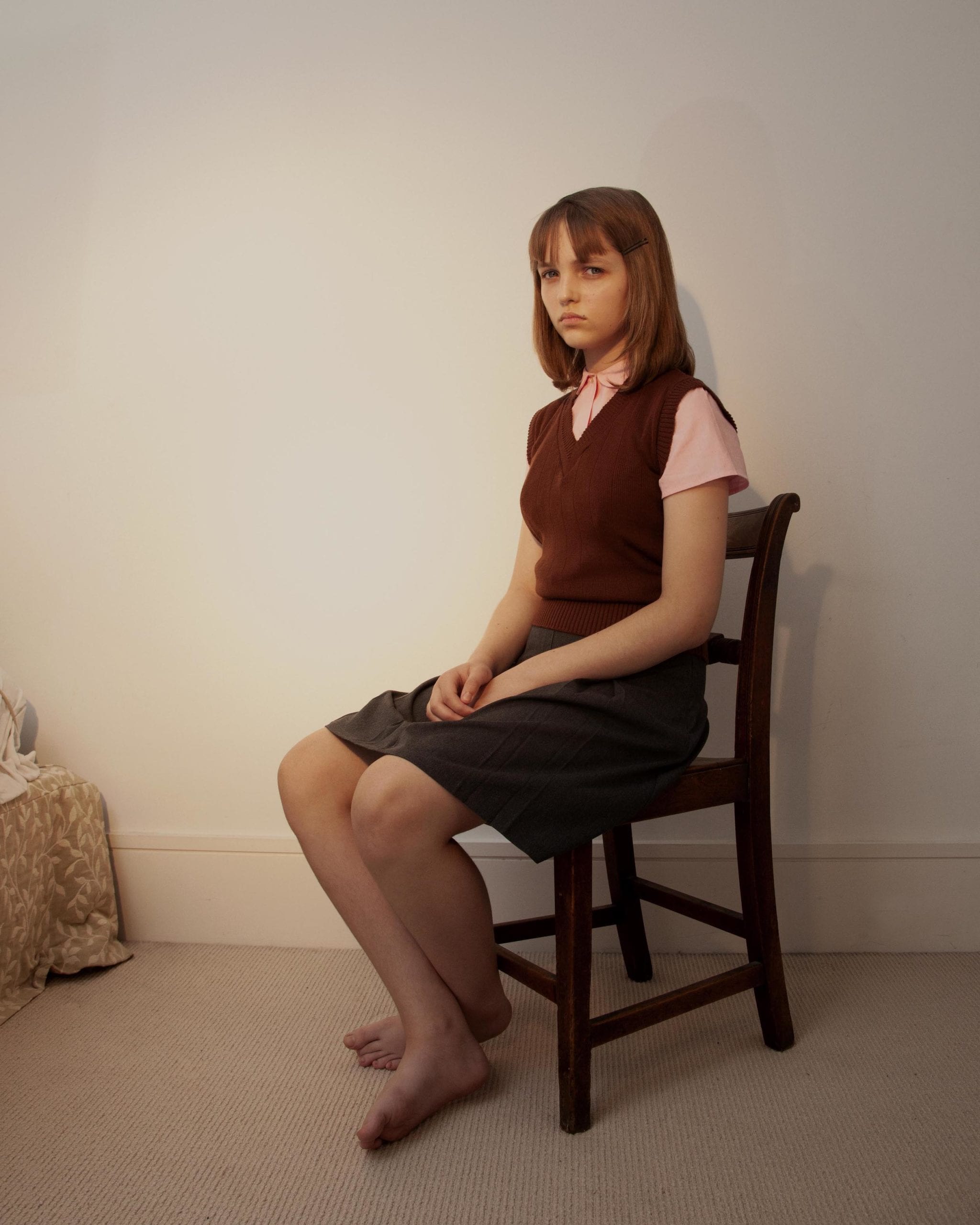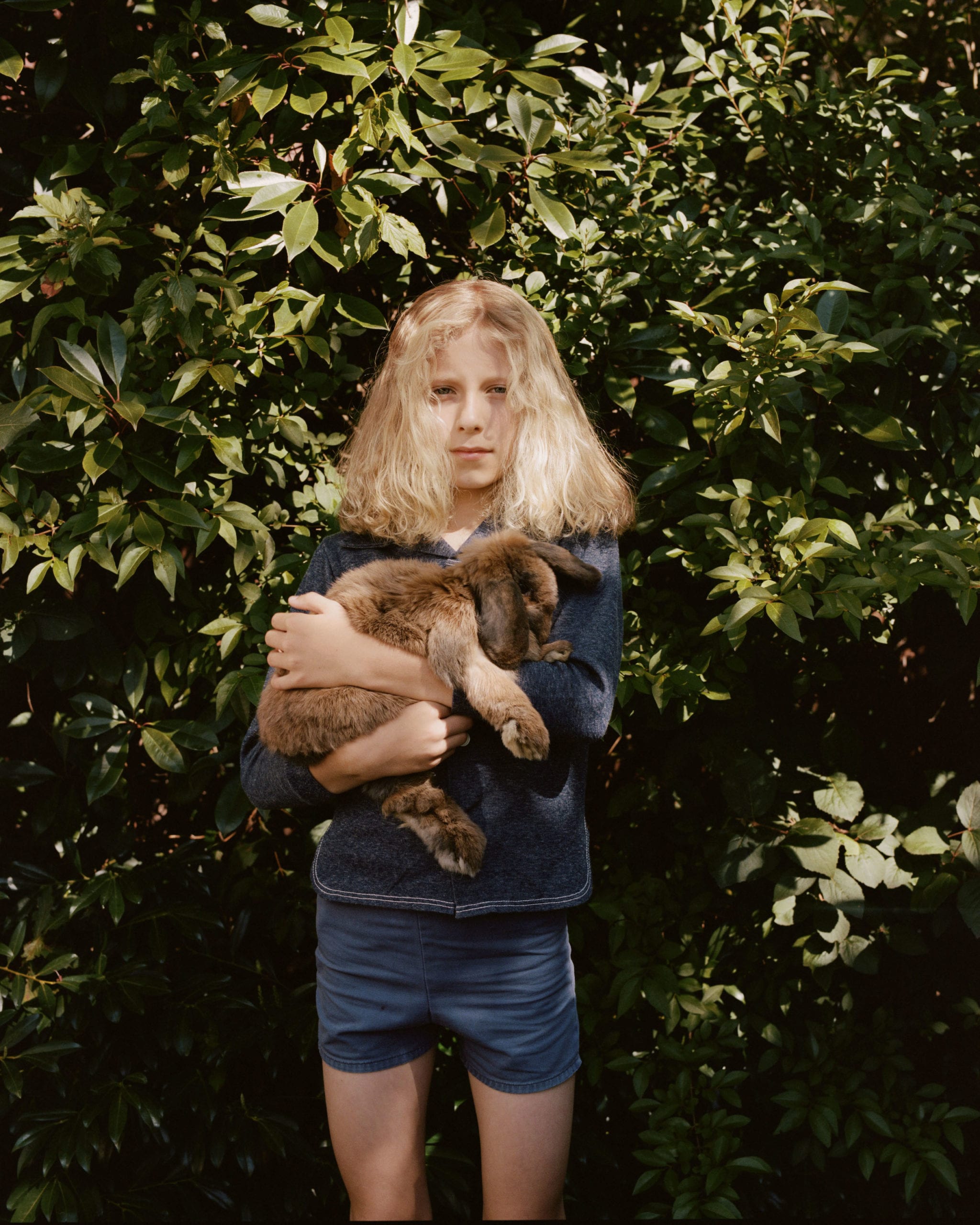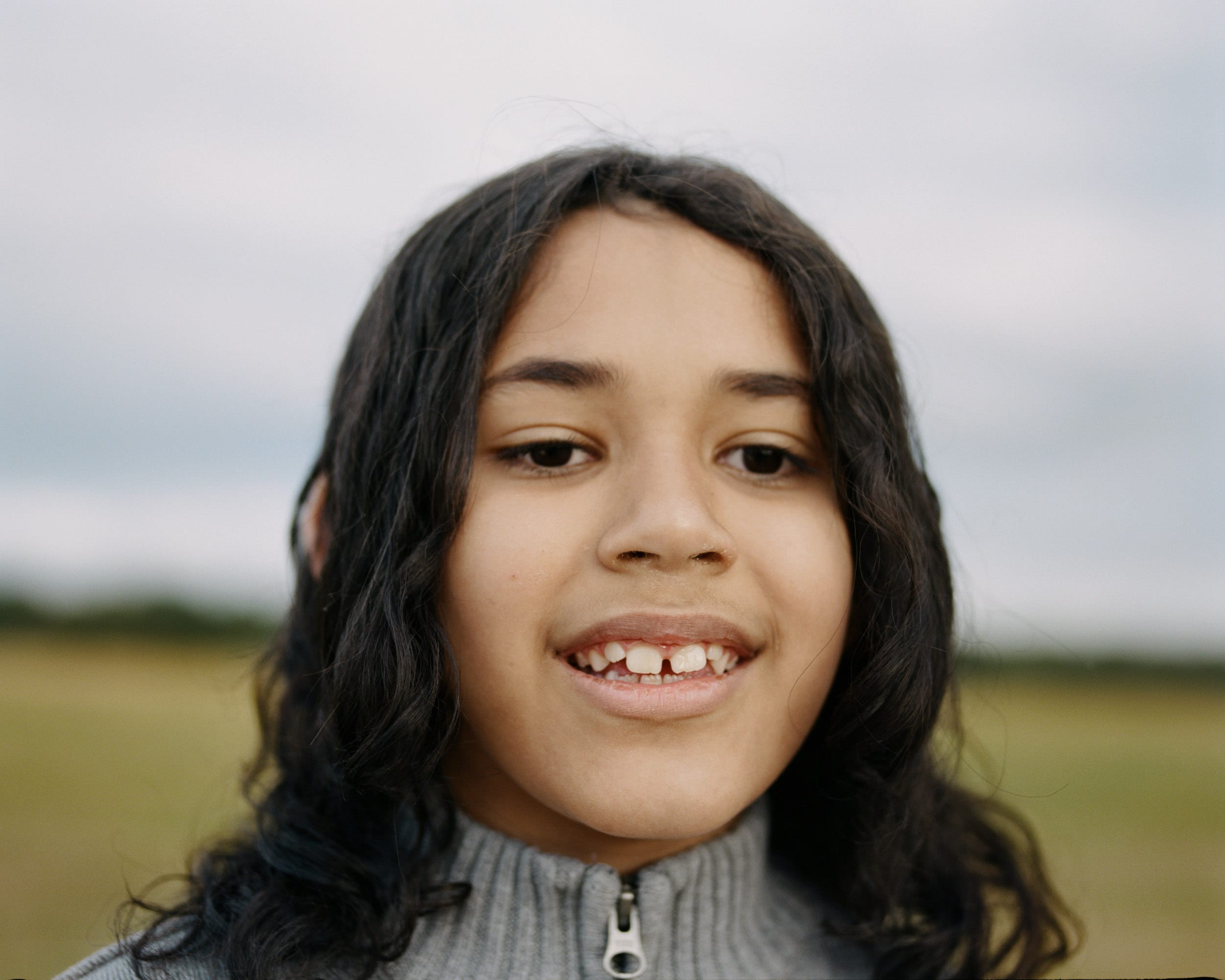Combining portraits with text written by the children or their parents, Day’s project reflects on the impact of this period of social isolation
The UK is now one week into its third national Covid-19 lockdown, and with that, over six million children are at home, unable to attend school. The effectiveness of remote education is difficult to determine, and since the beginning of the pandemic, repeated periods of isolation have chipped away at pupils’ progress. The consequences of social isolation are still yet to be known, but humans are social beings, and for children, school is the most important arena to nurture social relationships.
Children of Covid is a new series by British photographer and film director Bex Day, exploring the emotional and physical implications of Covid-19 on children between the ages of four and twelve. Following her last series, Seesaw, which explores Day’s personal experience of OCD from isolation, the photographer decided to expand on this fusion between documentary and fashion photography. Cast by Day herself, with styling by Adam Winder, and hair by Tommy Taylor, her intention was to create a timeless series of images, which depicts the unique and varied effects of the lockdown on each of the children she photographed.
Here, Day shares some of her images, and text written by the child or their family.
Charlie, 10
As written by his parents
Charlie has become less active. His concentration levels have decreased, and he has less motivation to get out and be active. Without after school activities as motivation, it has now become a struggle to get back into a routine, but we are getting there. Academic impact is unknown – he did keep up with his school work online, but I am sure there wasn’t as much as work being done as there would have been in school, and therefore levels may have dropped. He has not enjoyed his “normal” summer holiday, but has made the most of what we have done.
On a positive note, he has become more independent, being able to make himself breakfast or lunch while we have been working from home, and also helping his sibling access online learning. His technology skills have definitely advanced. He also now enjoys spending quality time at home with his family, as we have learned to do other activities indoors, such as board games, or reading together, which we would have never done before.
Eliana and Eleora, four
As written by their parents
The twins have been doing well since the pandemic. They have siblings who kept them busy throughout. Although they missed going to school or going out as much as they would have, they were entertained at home. They learned a lot during the pandemic. They learned to write better too. The garden was equipped for them so, practically, they had similar things to play with if they went to a park. They made lots of videos and took photos for their Instagram page which is run by their mum. The videos made them more confident, and they had fun making them.
Natasha, 12
Covid-19 affected me in lots of different ways. I became more productive, due to desperately wanting something to do now that I wasn’t able to go to school. I also think I became a lot more patient with certain things because I realised how long I would have to wait to go back to my everyday lifestyle. On the other hand, I also became more nervous around other people because of how much time I spent alone.
Joshua, nine
As written by his parents
Covid-19 has impacted me in many ways. The first way is that lockdown has made me forget so many things about London, whether it be forgetting how the Overground works, or forgetting where restaurants were, or where theme parks were. The second way is that it made me really use my time well. Some of the ways I used my time are: learning how to code on a game engine, spending more time with my family, and learning a new language. Personally I think Covid-19 has brought everyone closer with each other than before and it has really changed how I think about how I’m spending my time.
Cooper, 10
Covid-19 meant I couldn’t see my friends as much and the remote learning was harder, but I still worked as hard as I would have at school. The beginning of lockdown meant I spent more time at home with my family and dogs, which I loved, and I also spent more time outdoors as I wasn’t at school all day. I really missed the sports at school but we still made sure we did sporty activities at home with running, bike rides, walks and games in the garden.
Gabriel, 8
As written by his parents
How has COVID impacted Gabriel’s life? Firstly, a once adventurous child who took walks in nature parks and trails every evening, who finished school and went to various hobbies like dance class and martial arts, had to learn overnight to be contained within the four walls of home for 23 hours of his day. No school, no hobbies, and no adventures is a shock to the system in itself, but on top of that he had to watch the grown ups’ usually calm, easy going behaviour change to anxious, confused and out of sorts.
A panicked and uncertain atmosphere overtook the house. The TV, which spent most of its time switched off, now lit up with various channels talking about a germ that was set to wipe out a lot of the world’s population. The news readers sounded as panicked as the grown ups at home. The once fun and exciting weekly Sainsbury’s shop was to be a thing of the past and only one grown up could leave the house to go shopping.
As the months went by and lockdown eased, going back out on adventures was now allowed but instead of filling a backpack with toys and a tennis ball, the backpack was filled with wipes, hand sanitiser and disposable masks. Instead of stopping to admire and smell the spring flowers, they were to be admired only by their appearance because face masks became a barrier between Gabriel and smelling flowers. It was important to teach Gabriel not to lower his mask in public even if it was to smell a flower.
Gabriel became very conscious of personal space and became very worried if people came closer than what he thought was two meters. As a brain surgery warrior, we had to take a little more care with Gabriel and his contact with people.
FaceTime became the new way of contacting the outside world. As the rules have now relaxed somewhat and school begins, we have noticed a nervousness and ingrained concern in Gabriel. We feel that Gabriel has gained a maturity that wasn’t present before lockdown, and has learned some key life lessons. But with regards to school education, we will have to see the impact that Covid-19 has had on that when he returns. This pandemic has certainly impacted Gabriel’s mental health. We are hoping that Gabriel can relax into his usual life, but we know there will always be a part of him that has been shaped by this pandemic.

